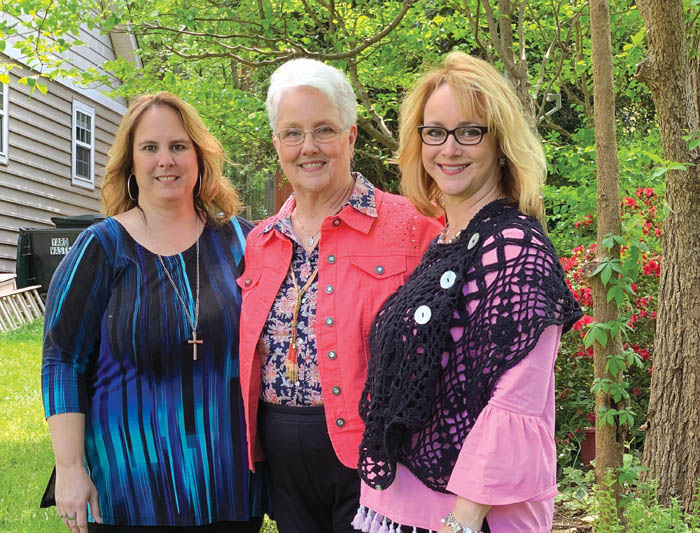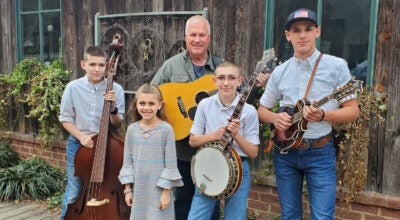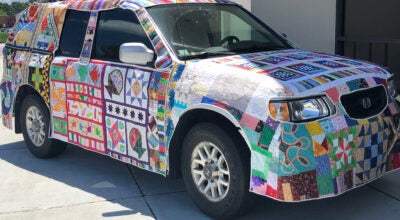‘You just have to trust the science’: Sharon Deal takes on the challenge of breast cancer
Published 12:00 am Sunday, October 13, 2019
By Susan Shinn Turner
For the Salisbury Post
When Sharon Deal had her first mammogram, there was a benign lump in her left breast.
Deal, who’s now 78, has had annual mammograms ever since. Twenty years ago, she
had a benign lump in her right breast. So it was a shock when she was diagnosed in April
with invasive ductal carcinoma in her right breast, the most common — and easily
treatable — form of breast cancer.
“Mine had already spread to the surrounding tissues,” Deal says. “Hence, the ‘invasive’
in my diagnosis.”
Her report said the tumor was a Nottingham Grade 1.
She was told, “This is good.”
The tumor was rated ER positive, PR positive and HER 2 negative, all good statistics. An
MRI showed her left breast was clear and there was nothing else in the right breast. The
lymph nodes were also clear in her right side.
“That’s some of the best news you can get,” Deal says. “That’s were the tumor was.”
She had a lumpectomy on May 15 and the tumor was removed. Because the size was larger than expected, it was reclassified as Grade 2.
She would not have surgery until then because her oldest grandson, Aaron Rousey, graduated from Appalachian State University on May 11. Her other grandchildren are Reece and Davis Beck and Rebecca Rousey, all students at ASU.
Deal had another outpatient surgery on June 5 to make sure margins in the surrounding tissues were clear. Both surgeries at Levine Cancer Center NorthEast went well, Deal says.
Later in the summer, she met with her oncologist, Dr. Geetha Vallabhaneni, and her radiation oncologist, Dr. Benjamin Moeller. She took an oncotype test that rated the percentage of the cancer’s recurrence.
In early July, she was packing up to leave for the beach when she got a call that the results were in. Her younger daughter, Laura Rousey, left work to meet her at the office.
The scale is zero to 100. With a score lower than 26, the recommendation is radiation and oral chemo for five years.
“My score was 38,” Deal says. “They consider that a high risk.”
Her doctor recommended four rounds of chemotherapy. Deal wanted to think about it and did more research. She wanted to know the effects of the drugs on older bodies.
At the beach, she says, “I sat out on the deck. I did a lot of reading and a lot of praying.”
The next week, she saw her primary care physician, Dr. James Wheless, who told her, “I’m not going to tell you what to do. This is your decision.”
Neither would Laura or Deal’s older daughter, Amanda Smith.
She decided to have the chemo.
“You just have to trust the science,” she says.
Deal finished her treatment Sept. 26.
“Taking the treatment is easy,” she says. “I lost my hair, but that’s OK. It’ll grow out.”
She experienced fatigue for about three days after treatment and lost her sense of taste.
“For a while, eating was a real chore,” she says.
Deal is starting to feel better with chemo behind her. She says she just expected each year to show a clear mammogram, so this year was a shock.
Her older daughter agrees.
“I did not expect it to be cancer,” Amanda says. “When you hear the word ‘cancer’ like we did with Dad six years ago, it was a kick in the stomach.”
Amanda soon realized, however, that this was a totally different cancer than Bill Deal’s Stage 4 lung cancer.
When they met with doctors at Levine, she says, there was a whole plan laid out. “I felt really good about it.”
“Mom’s attitude has always been good. She’s upbeat and positive.”
Again, mother and daughter are in agreement.
“The word ‘cancer’ is not something you want to hear,” Sharon says. “But there were a lot of positives. It was caught early, it was relatively small, it was slow moving, and the lymph nodes were clear. All of that increases your chances.”
Deal will start radiation Monday, every weekday for three weeks.
“Kaye Brown Hirst told me it was a piece of cake,” she says.
The whole experience, she says, has been an “inconvenience.”
“That’s as good a word as any,” she says. “It filled my whole summer and is going into the fall. There are things I’d like to be doing, but I can’t do.”
It would have been easy, she says, to put off her mammogram because she had cataract surgery this spring. But she didn’t. And she won’t next year.
Neither will her daughters.
“Not having our annual mammograms is not an option,” Amanda says. “We both get them like clockwork.”
Like mother, like daughters.
“Mom has done really well,” Amanda says. “We are really proud of her.”







